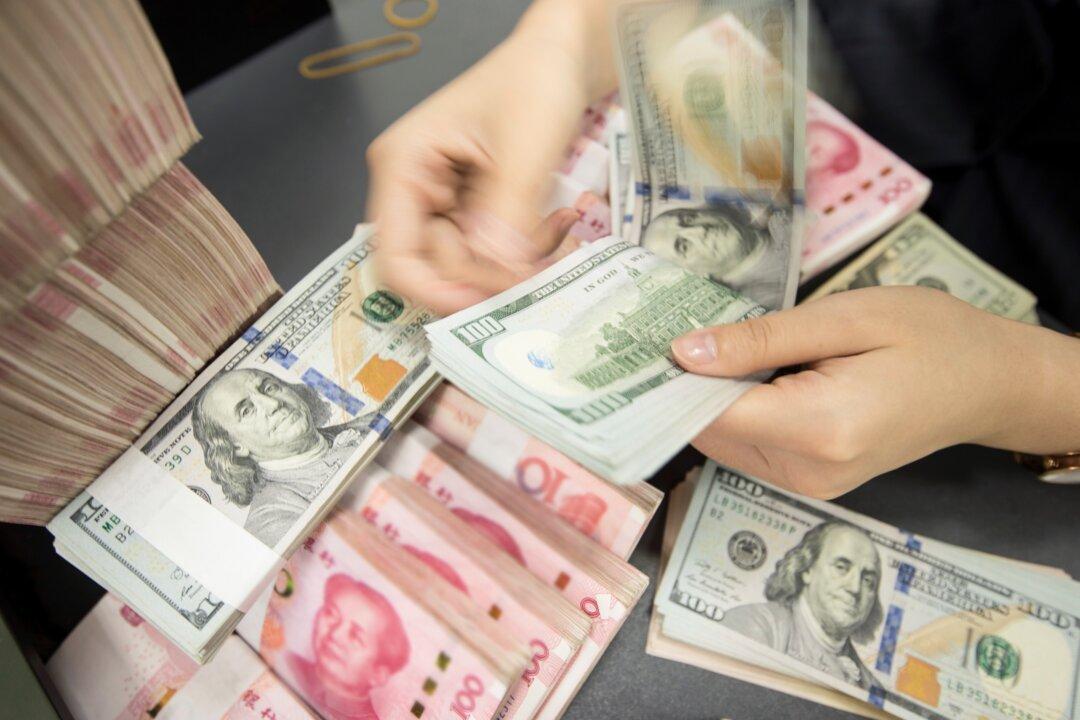The value of the Chinese yuan fluctuated dramatically on Nov. 4 as votes were being counted for the U.S. presidential election.
Around 9 p.m. Eastern Standard Time (EST) on Nov. 3, as votes for U.S. President Donald Trump led in the state of Florida, the yuan’s offshore market rate plunged from $0.14975 to $0.14831. The value fell by one percent within minutes.





